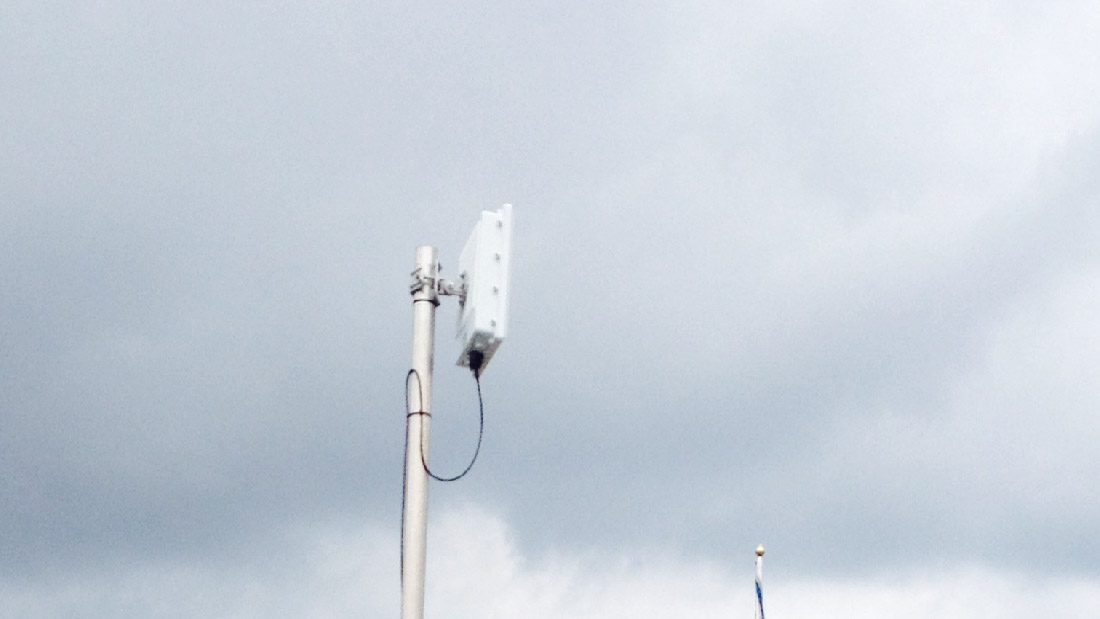
14 May 2014 Repeatit Trinity: The Middle Market Sweet Spot
 As expectation shifts towards an “always online” lifestyle, today’s connectivity demand has never been greater. Driven from this requirement to be connected it is no secret that there has been an explosion in the number of wireless networks being deployed. A great deal of globally deployed entry/consumer level, lower cost wireless bridges that contribute to this infrastructure, particularly in less congested environments, are coming from one manufacturer and one manufacturer alone.
As expectation shifts towards an “always online” lifestyle, today’s connectivity demand has never been greater. Driven from this requirement to be connected it is no secret that there has been an explosion in the number of wireless networks being deployed. A great deal of globally deployed entry/consumer level, lower cost wireless bridges that contribute to this infrastructure, particularly in less congested environments, are coming from one manufacturer and one manufacturer alone.
California based Ubiquiti Networks Inc, which manufactures low cost wireless hardware designed to cheaply serve wireless service providers, has been responsible for a huge shift and trend in the wireless hardware marketplace. Listed on the NASDAQ, Ubiquiti Networks (UBNT) is forecasting revenue of $150 million for the current quarter. Traditionally the wireless industry has been dominated by specialist high end, heavily R&D focused manufactures. At a guess most likely the change is down to standards based hardware becoming more freely available at a lower cost hence a real movement to other segments of the market.
 Whilst the above shift is evident, specialist proprietary based wireless vendors still hold a large percentage of market share. The reason being is often the more complex, robust, resilient networks, particularly those deployed in more densely populated and congested environments still require “best of breed” extremely well engineered products to support the growing bandwidth demands. Ubiquiti is at the point of being a victim of it’s own success explained with the economic theory of the “Tragedy of the Commons” theory by Garrett Hardin, according to which individuals, acting independently and rationally according to each one’s self-interest, behave contrary to the whole group’s long-term best interests by depleting some common resource. In other words many resellers/WISPs are deploying low cost, less efficient PTP & PMP acting independently and rationally to their own self-interest, which is ultimately acting against everyone’s long term self interest due to the increased use of the 5GHz spectrum. As more and more deploy entry level wireless PTP & PMP, especially in urban environments, the 5GHz band is becoming increasingly difficult to use for those same low cost radios.
Whilst the above shift is evident, specialist proprietary based wireless vendors still hold a large percentage of market share. The reason being is often the more complex, robust, resilient networks, particularly those deployed in more densely populated and congested environments still require “best of breed” extremely well engineered products to support the growing bandwidth demands. Ubiquiti is at the point of being a victim of it’s own success explained with the economic theory of the “Tragedy of the Commons” theory by Garrett Hardin, according to which individuals, acting independently and rationally according to each one’s self-interest, behave contrary to the whole group’s long-term best interests by depleting some common resource. In other words many resellers/WISPs are deploying low cost, less efficient PTP & PMP acting independently and rationally to their own self-interest, which is ultimately acting against everyone’s long term self interest due to the increased use of the 5GHz spectrum. As more and more deploy entry level wireless PTP & PMP, especially in urban environments, the 5GHz band is becoming increasingly difficult to use for those same low cost radios.
Through the combination of the above we are rapidly seeing a mid-market develop driven by a quest for proprietary like based technology at a lower cost price point. It has been this newly created “something in the middle” space where Repeatit has established some real momentum. Launching the 2.0, Next Generation Trinity TDD based products this Swedish based vendor has seen an unrelenting demand for their second generation product.
The 3 Repeatit C’s: Capacity, Cloud, Cost-effective.
Repeatit still utilises an 802.11n chip set, the antenna gains in the product range vary to match both of those in the higher and low cost options. The Repeatit Trinity range is able to a true capacity up to 240 Mbps in the unlicensed 5GHz band. Repeatit’s secret weapon is Adaptive Duplex Transmission which enables the radio to automatically shift capacity to where it’s needed depending on the uplink & downlink requirements.
The real secret to the success is that the Trinity TDD represent great performance vs price. The management is simple and intuitive. The Repeatit product set utilises a hybrid cloud based management platform. Users have the ability to manage a single link “in-house” whilst having the option to manage full networks through Repeatit’s RCS management software or from anywhere in the world via the secure Repeatit cloud. Another clever piece of technology is the TDD based protocol. True TDD enables real-time division and slot sharing that emulates full duplex transmission across a radio link. The TDD technology allows users to increase link capacity, mitigate interference (as no external interference will affect the transmission) and the reduction in capacity over long range link distances is minimised. Additionally the entire Trinity platform shares the same synchronisation technique allowing interoperability between GPS sync devices across your whole network. The Trinity series also benefits from a free 48 hour advanced replacement warranty for year one. This in turn means lower spare holdings, a single interface and proprietary type technology at a true mid-market price making dependable and scalable networks a realistic possibility.
George’s Google+ Profile